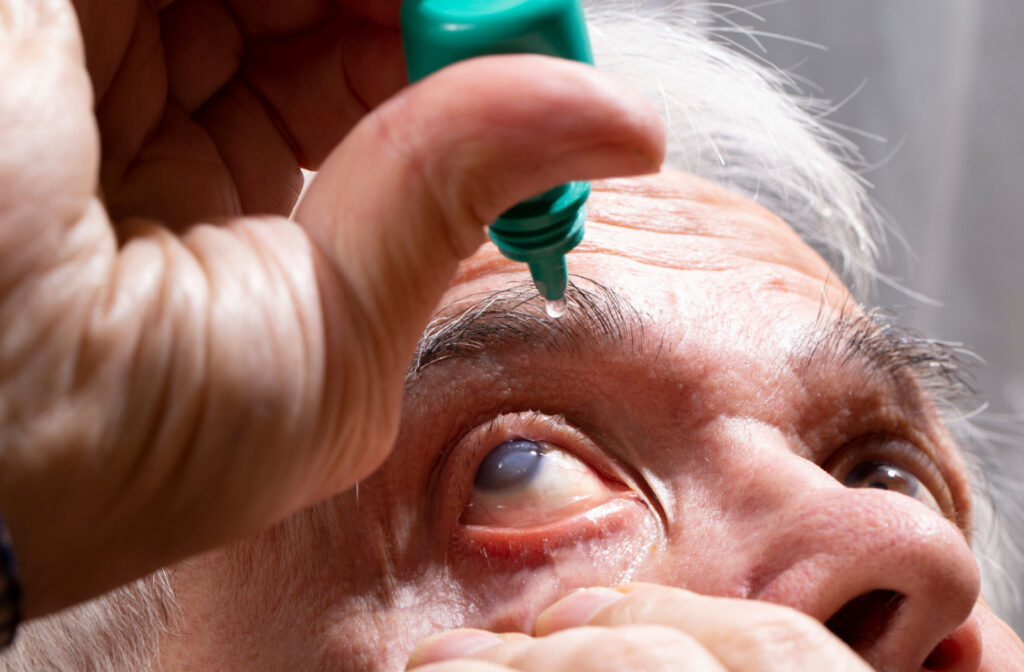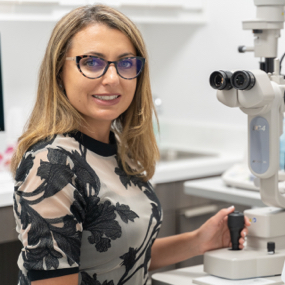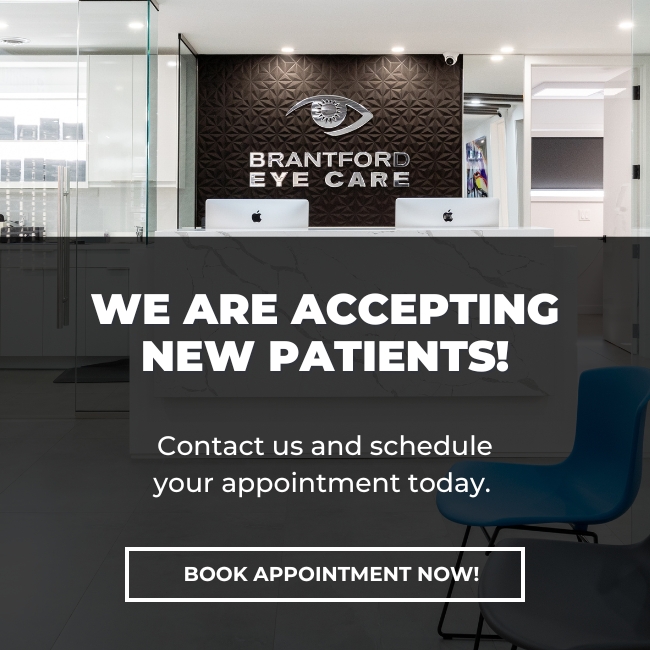Glaucoma, a progressive eye condition, can cause long-term damage to the eye and irreversible harm to the optic nerve. This condition often begins with few, if any, symptoms, and can only be properly diagnosed in its earliest stages with the help of an experienced optometrist. But why does this condition develop? Is glaucoma hereditary?
Glaucoma can be hereditary. If someone in your family has glaucoma, you are more likely to develop the condition yourself. But it’s important to note—while genetics play a role, they aren’t the only determining factor in how likely a person is to develop glaucoma.
Whether or not you have a family history of glaucoma, you should regularly visit the optometrist for comprehensive eye exams so they can monitor changes in your intraocular pressure and other possible signs of eye disease.
What Is Glaucoma?
Glaucoma is an eye condition that often develops due to a buildup of internal pressure in the eye. Your eye has a complex system where nutrients are brought in through the production of intraocular fluids, and then this fluid leaves through a drainage system. But if a problem develops with the drainage system, the pressure in your eye can begin to build, causing glaucoma.
Glaucoma begins with very few symptoms, if any, but eventually progresses to the point that the pressure causes damage to the optic nerve. The optic nerve, responsible for transmitting images to your brain, is an extremely sensitive part of your vision system. If your intraocular pressure becomes too high, it begins to put pressure on this nerve. If left untreated, glaucoma can cause long-term irreparable damage to the nerve.
There are several different types of glaucoma:
- Open-angle glaucoma: The most common form, this occurs when the eye’s drainage system becomes clogged. Fortunately, this can be treated if diagnosed early.
- Narrow-angle glaucoma: This happens when the area between the iris and the cornea closes off. This stops fluid from properly draining and begins increasing eye pressure, and needs medical attention as soon as possible.
- Normal or low-tension glaucoma: This may happen when damage occurs to the optic nerve even though the eye’s pressure hasn’t significantly increased. This form is rarer and not fully understood.
- Secondary glaucoma: Occurs when the cause of the increased intraocular pressure is due to something identifiable like an eye injury or significant inflammation.
There’s a key problem associated with glaucoma, though. Open-angle glaucoma, the most common form, often develops slowly and without many noticeable symptoms. This is why it is often referred to as “the silent thief of sight.”
Symptoms of Glaucoma
In the early stages, glaucoma may not present any noticeable symptoms. However, as it progresses when left untreated, gradual loss of peripheral vision becomes more noticeable.
It’s essential to remember, though—this symptom may not necessarily mean that you have glaucoma, but they are indicators that an eye exam is needed with the help of a trained optometrist.
Is Glaucoma a Genetic Disease?
If you have a family history of glaucoma, you’re more likely to develop this condition yourself. While glaucoma is considered a hereditary disease, genetics aren’t the only factor that can contribute to how likely you are to develop this condition.
Your likelihood of developing glaucoma is also affected by:
- Your age
- Your ethnicity
However even with no risk factors mentioned, glaucoma can still be developed.

How Is Glaucoma Treated?
Unfortunately, there is no existing cure for glaucoma. However, there are treatments available that can help slow or prevent further damage to your vision, depending on how severely the condition has progressed.
An optometrist may recommend:
- Specialty eye drops
- Laser treatment
- Glaucoma surgery
However, any lost vision can’t be restored. The optic nerve can’t regenerate the way some other parts of your body can, so it’s essential to detect and treat glaucoma as early as possible. With proactive care, it is possible to spot glaucoma before vision is lost.
Where to Get Help for Glaucoma
If you have a family history of glaucoma or have other risk factors for the disease, booking regular, comprehensive eye exams is essential.
Regular eye exams every 1-2 years depending on your age and health are also essential for everyone even with no glaucoma risk factors.Come visit us at Brantford Eye Care so we help protect and care for your vision. Book an appointment today.




